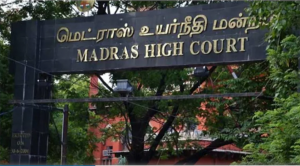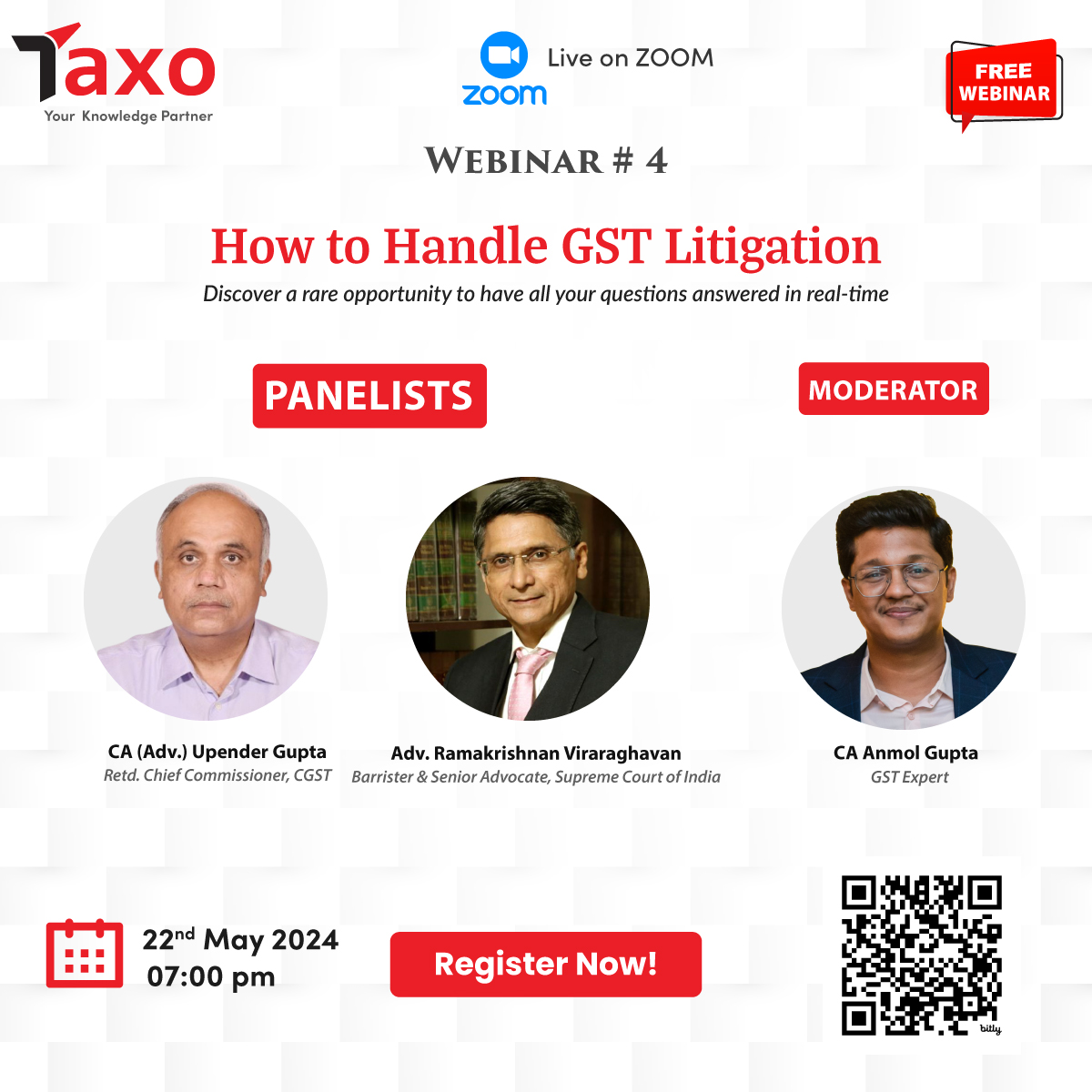 The Hon’ble High Court of Madras vide its order dated 20.06.2022 in the matter of TVL. Rashtriya Ispat Nigam Limited Vs. The Deputy Commissioner (CT) III Chennai, The Assistant Commissioner of State Tax, Chennai in W.P.No.22241 of 2019 & W.M.P.No.21522 & 21524 of 2019, allowed the refund of unutilized credit pertaining to CST when there is a bar to carry forward the same in TRAN -1 during transition to GST regime.
The Hon’ble High Court of Madras vide its order dated 20.06.2022 in the matter of TVL. Rashtriya Ispat Nigam Limited Vs. The Deputy Commissioner (CT) III Chennai, The Assistant Commissioner of State Tax, Chennai in W.P.No.22241 of 2019 & W.M.P.No.21522 & 21524 of 2019, allowed the refund of unutilized credit pertaining to CST when there is a bar to carry forward the same in TRAN -1 during transition to GST regime.
Facts: –
- The petitioner was registered as a dealer under the provisions of the Tamil Nadu Value Added Tax Act, 2006 (in short ‘TNVAT Act’) and Central Sales Tax Act, 1956 (‘CST Act’) and was being regularly assessed under both TNVAT & CST Act
- That in August 2016, an audit was conducted by the audit wing of Enforcement Wing of the Commercial Tax Department, and when the petitioner was unable to substantiate its claim of concessional levy, as claimed, it deposited an amount of Rs. 40,00,000/- towards non-availability of portion of C- Forms as on date of audit.
- However, when the order of assessment was passed on 30.12.2016, there was an excess of Rs. 38,91,410/- as the petitioner was in position to provide the necessary statutory declaration Forms.
- That on 30.06.2017 an amount of Rs.11,94,312/- was lying as a credit balance and rest of the amount of excess was adjusted. Thereafter on introduction of Tamil Nadu Goods and Service Tax Act, 2017, the petitioner became eligible to the credit of the said amount of Rs. 11,94,312/-.
- Further Section 140 of the TNGST Act, provides for refund of any credit pertaining to CST, however places a restriction for availment of such credit. Therefore, the petitioner made request for the refund of the said amount of Rs. 11,94,312/- before the Deputy Commissioner, however the same was not acted upon by the respondents.
- The petitioner being aware that it could not claim transition of the said amount under Section 140(1), therefore initially did not seek transition in TRAN -1. However, later on apprehending that it would be denied the refund claim, filed a TRAN – 1 claiming the amount of refund as credit carried forward within the extended time granted for filing TRAN – 1 till 27.12.2017.
- Thereafter, the impugned order came to be passed by the respondents, which was initiated through an issuance of Show cause notice proposing to reject the transition of ITC, confirming the proposal and holding that the petitioner is liable to penalty for wrongful transition of the ineligible credit, and the interest was also levied from 27.12.2017 till the date of order. The petitioner being aggrieved filing the present Writ Petition.
Petitioner’s Submissions: –
- It was submitted on the behalf of the petitioner that the petitioner is well aware of the wrongful claim, however its claim is lying pending from 2017 without any favourable response.
- The petitioner relied on DMR Constructions Vs. The Assistant Commissioner, Commercial Tax Department, [(2021) 91 GSTR 278], on Telangana High Court in Magma Fincorp Ltd. as well as on Ganges International Private Ltd. Vs. The Assistant Commissioner of GST & Central Excise, [(2022) 1 Writ LR 431], wherein the doctrine of necessity was invoked, though in distinguishable circumstances.
- Referring to Section 42(5) of the TNVAT Act read with Section 9(2) of the CST Act and Section 174 of the TNGST Act, it was submitted that the petitioner is legally entitled to claim of refund, and the transition being admittedly incorrect, was only to protect the interests of the petitioner.
On the other hand, relying on Section 142 (8) (b) of TNGST Act, it was submitted on the behalf of the respondents that there is clearly a restriction on the availment of credit of any amount of refund to which the taxable person is entitled under the erstwhile laws.
Held: –
- The Hon’ble Court after considering the submissions, facts of the case and the law applicable on the issue, found that Section 42(5) of the TNVAT Act provides for the payment and recovery of tax, penalty etc. and cast a mandate upon the Commercial Taxes Department to refund any excess determined within a period of 90 days from date of order of assessment/revision/appellate order. Where the refund exceeds the stipulated time of 90 days, the Government is liable to pay interest where the amount is not less than one hundred rupees, a sum equal to a sum calculated at the rate of half percent or part thereof for such amount for each month or part thereof.
- It was observed that the petitioner understands the law correctly and accordingly asked for refund claim for the amount in question through communication dated 19.07.2017, wherein a request was made to refund the amount of said unutilized credit as early as possible.
- It was found by the Hon’ble Court that the motive of the petitioner seems to be bonafide as it not only asks for refund but also states that it is not entitled for transition under GST laws.
- The Hon’ble Court considering the counter affidavit filed by the respondents, wherein it has been stated that ‘The excess after adjustment, was not refunded immediately as there existed technical problems in giving VAT refunds through online, due to introduction of TNGST. However, once, the online issue was resolved, all dealer were given legacy refunds. However, the dealer has taken 11,94,312 amount into TRAN 1 wrongly. He must have claimed refund once the technical issue under TNVAT Act was resolved, found that this Court is unable to appreciate how the petitioner is expected to be aware of the technical difficulties faced by the officer or indeed, why such delay should enure to its detriment.
- It was found that the petitioner is entitled for refund, which is quite evident from the order dated 30.12.2016 passed by the respondents, wherein excess amount was revealed and there is no dispute raised in this regard.
- Further, the imposition of penalty and interest would be hyper technical as the inadmissible claim of transition made by the petitioner was a last-ditch effort by a desperate assessee.
- There is delay of refund due to technical problems, as submitted in the counter affidavit, and those problems are still ongoing. Thus, the petitioner cannot be expected to wait indifferently for refund.
- It was found that the filing of TRAN – 1 is clearly misconceived, however the petition is protected by the intention to protect its claim of refund on account of delay on the part of respondents.
- It was observed that Section 74 can be invoked only in the case wrongful availment/utilization of ITC by reason of fraud and the revenue has to establish wilfull misstatement or suppression to evade tax. However, in the present case the question of evasion of tax does not arise since it is not the case of assessment but only the determination of the correctness of ITC. The petitioner in the communication dated 19.07.2017 made a categorical statement as per, and being aware of law with respect to claim of refund. Thus, the disclosure is clear and appears to be unambiguous that the intentions of the petitioner was only to protect its interests.
- It was also found that perusal of counter with regard to delay and the efforts of the petitioner from the beginning was only to claim refund shows bonafide of its actions. Therefore, the ingredients of Section 74 are not satisfied in the present case and to that extent the impugned order is set aside.
The Hon’ble Court with the above findings allowed the writ petition with the directions to the respondents to process the refund on merits with payment of interest from 27.12.2017, the date on which the TRAN – 1 was filed by the petitioner. The TRAN-1 filed by the petitioner, is admittedly incorrect in law, it does not hold any force, and the question of availment of credit does not arise.



